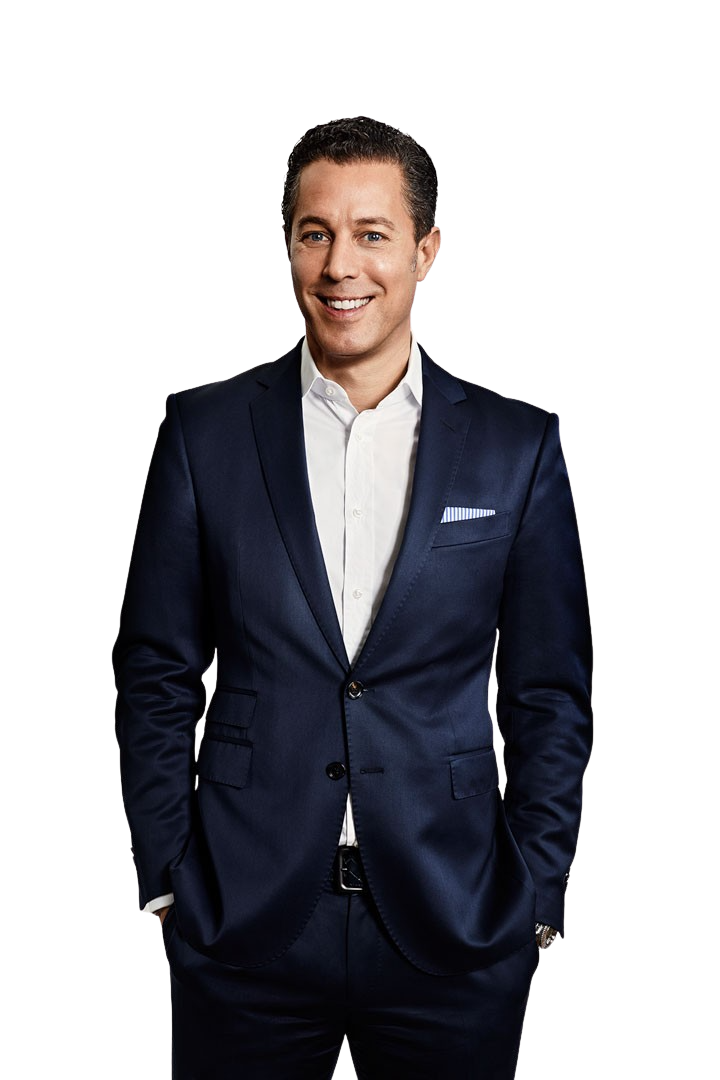Pressemitteilung
Berylls x Automotive Suppliers
er WCAR genannte ETF ist der erste Index, der ausschließlich Unternehmen der globalen Wertschöpfungskette innerhalb der Mobilitäts- und Automobilindustrie zusammenfasst.
München, Frankfurt, 27.September 2022: Berylls, LeanVal Research und WisdomTree, der Sponsor börsengehandelter Fonds (ETF) und börsengehandelter Produkte (ETP), geben die Einführung des WisdomTree Global Automotive Innovators NTR UCITS ETF (WCAR) Index be-kannt.
Der WCAR ist der erste Index, der das gesamte globale Ökosystem der Automobilindustrie abdeckt und die zukunftsorientierten Strategien der Unternehmen berücksichtigt, indem er die 100 relevantesten und vielversprechendsten börsennotierten Unternehmen weltweit um-fasst. Der Index ist damit sortenrein und umfasst die folgenden Sektoren innerhalb der Auto-mobilindustrie: OEMs, Zulieferer, Autohändler, Mobilitätsdienstleister und Infrastrukturanbie-ter. Dadurch kann der ETF auch alle Megatrends erfassen, die den Wandel der globalen Auto-mobilindustrie prägen. Diese sind Konnektivität, autonomes Fahren, geteilte Mobilität und Elektrifizierung.
Bei der Entwicklung des WCAR ist WisdomTree eine Partnerschaft mit Berylls und LeanVal Research (LeanVal) eingegangen. Berylls, im Jahr 2011 gegründet und bis heute auf nahezu 200 Mitarbeiter gewachsen, hat einen klaren Fokus auf die Trends, die die Zukunft der Mobilitätsbranche prägen. Damit besitzt Berylls einen einzigartigen und vollumfassenden Überblick über das Universum der Unternehmen, die von den Megatrends der Mobilität profitieren werden. Die Auswahl, der für den WCAR selektierten Unternehmen basiert dabei auf einer automatisierten Analyse von mehr als 20 unabhängigen, quantitativen, proprietär durch Berylls entwickelten Kennzahlen, die die Strategie, Wertschöpfung, und Wahrnehmung der einzelnen Unternehmen erfassen und vergleichbar machen. Bei der Unternehmensauswahl für den WCAR arbeitet Berylls eng mit LeanVal zusammen. Das Equity-Research-Unternehmen, gegründet im Jahr 2017, verfügt über eine umfängliche Expertise in der Analyse, Bewertung und Auswahl von Aktien sowie in der Entwicklung von Aktienstrategien auf Basis hochwertiger Daten.
Weitere Informationen finde Sie in unserem Download – jetzt herunterladen!

Dr. Jan Burgard (1973) ist CEO der Berylls Group, einer internationalen und auf die Automobilitätsindustrie spezialisierten Unternehmensgruppe.
Sein Aufgabengebiet umfasst die Transformation von Luxus- und Premiumherstellern, mit besonderen Schwerpunkten auf Digitalisierung, Big Data, Start-ups, Connectivity und künstliche Intelligenz. Dr. Jan Burgard verantwortet bei Berylls außerdem die Umsetzung digitaler Produkte und ist ausgewiesener Spezialist für den Markt China.
Dr. Jan Burgard begann seine Karriere bei der Investmentbank MAN GROUP in New York. Die Leidenschaft für die Automobilitätsindustrie entwickelte er während Zwischenstopps bei einer amerikanischen Beratung und als Manager eines deutschen Premiumherstellers.
Im Oktober 2011 komplettierte er die Gründungspartner von Berylls Strategy Advisors. Die Top-Management-Beratung ist die Basis der heutigen Group und weiterhin der fachliche Nukleus aller Einheiten.
An das Studium der Betriebs- und Volkswirtschaftslehre, schloss sich die Promotion über virtuelle Produktentwicklung in der Automobilindustrie an.

Private Equity
Berylls x Automotive Suppliers
trong competition from strategic investors including OEMs and suppliers, and banks’ pullback from the car industry, are preventing large-scale growth investments and buyouts by private equity investors. Only turnaround investors seeking restructuring cases have been active. But a new generation of car manufacturers can change this in the future.
Seldom has there been so much wealth circulating, in search of attractive investment opportunities. Private equity remains one of the most lucrative investment classes; however the success story does not currently include the car industry. Private equity investments in automotive companies are at present far below average, and falling. That raises questions: why have private equity investors stopped trusting the sector they once loved, and will they return to the auto industry in the future?
Technological change, new business models and macro-economic trends are turning the car industry on its head, leading to a redistribution of profit pools along the value chain. Traditional car manufacturing companies’ profit margins are coming under pressure and strategic investors find themselves forced to restructure their portfolios, in order to remain competitive in the new age of mobility. The car industry is also dependent on highly complex global supply chains and as a result has been more severely affected by production losses caused by wars, pandemics and raw material shortages than other sectors.
More than three years of low returns have resulted in increased debt ratios and tight liquidity positions. Small and medium-sized suppliers have increased their net debts by an average of more than a third in the last few years. Even the major Tier 1 suppliers such as Continental, Bosch, ZF and Schaeffler have had their credit ratings reduced. Consequently, lenders are limiting their exposure to the car industry.
Available loan capital volumes have fallen and interest rates have risen. Traditional banks are cutting back investment in the sector, and alternative loan capital sources do not look much better. Debt funds can invest with a higher risk profile than banks and also sometimes make unsecured commitments. But for these, they need good financial planning and reliable cashflows. Instead, they are confronted with an uncertain outlook and will only get involved on favourable terms, if at all. Asset-based lenders are seen as the most expensive – and therefore the most unpopular – loan capital source.

Due to the synergy potential and longer investment horizons, strategic investors are currently prepared to pay higher purchase prices than financial investors. When prices are at a premium and lenders are unwilling, the value model of buyout funds (purchase price financing through additional debt (leverage) and dividend payments) is no longer sustainable. Other sectors currently provide better returns for private equity because lending conditions are more favorable.
However, carve-outs, succession situations and insolvencies have created many attractive opportunities for turnaround investors in the automotive sector. Strategic investors are put off turnaround companies because of the risk, time and management capacity involved. As a result, turnaround investors find themselves faced with limited competition for target companies.
Reassessing company structures and transferring manufacturing expertise into sustainable and growing product areas sets turnaround companies up for long-term growth. Bolt-on acquisitions and order volumes taken over from insolvent competitors also create economies of scale and improve the negotiating position with customers and suppliers.
For all these reasons, in the private equity space, the automotive sector is currently only attractive to turnaround investors with the necessary expertise. The ability to differentiate between attractive target companies in a fast-changing market, and develop their long-term potential, is essential for investments to succeed. Bringing in the right management capability to realize a company’s operational potential and improve the cost structure, accompanied by a reliable network in the car industry and in the turnaround community, facilitates targeted and efficient restructuring measures and sustainable relationships with all stakeholders.
Venture capital investors are already widely involved with automotive start-ups focused on new technologies and alternative business models, including Vehicle-as-a-Service and shared mobility ventures. As soon as this new generation of companies scales up and their cash flow turns positive, they will be an great fit for growth and buy-out investors’ investment criteria. In this respect venture capital investments can be seen as a precursor to private equity interest.
With greater clarity on what the future of the car industry will look like as time goes on, we expect lenders to regain their confidence and increase their engagement with the mobility industry. Loan-financed investment models will become lucrative again, and growth and buy-out investors will return. For turnaround investors, the intense competition in the car industry and the tremendous pace of development mean there will be no shortage of companies that are left behind and in need of external expertise and capital.
Andreas Rauh joined Berylls Equity Partners as co-founder and managing director in January 2020. Berylls Equity Partners, as the investment company of the Berylls Group, invests in companies in the mobility industry that are in special situations.
Andreas is an expert in private equity, mergers & acquisitions and corporate management.
After ten years in transaction advisory with a focus on medium-sized companies, Andreas moved to the investment sector in 2014. There, he has since accompanied a double-digit number of company acquisitions and sales in a leading role.
Andreas is a business graduate with a diploma from the University of Trier and holds a Master of Science in Business degree from Handelshøyskolen BI.